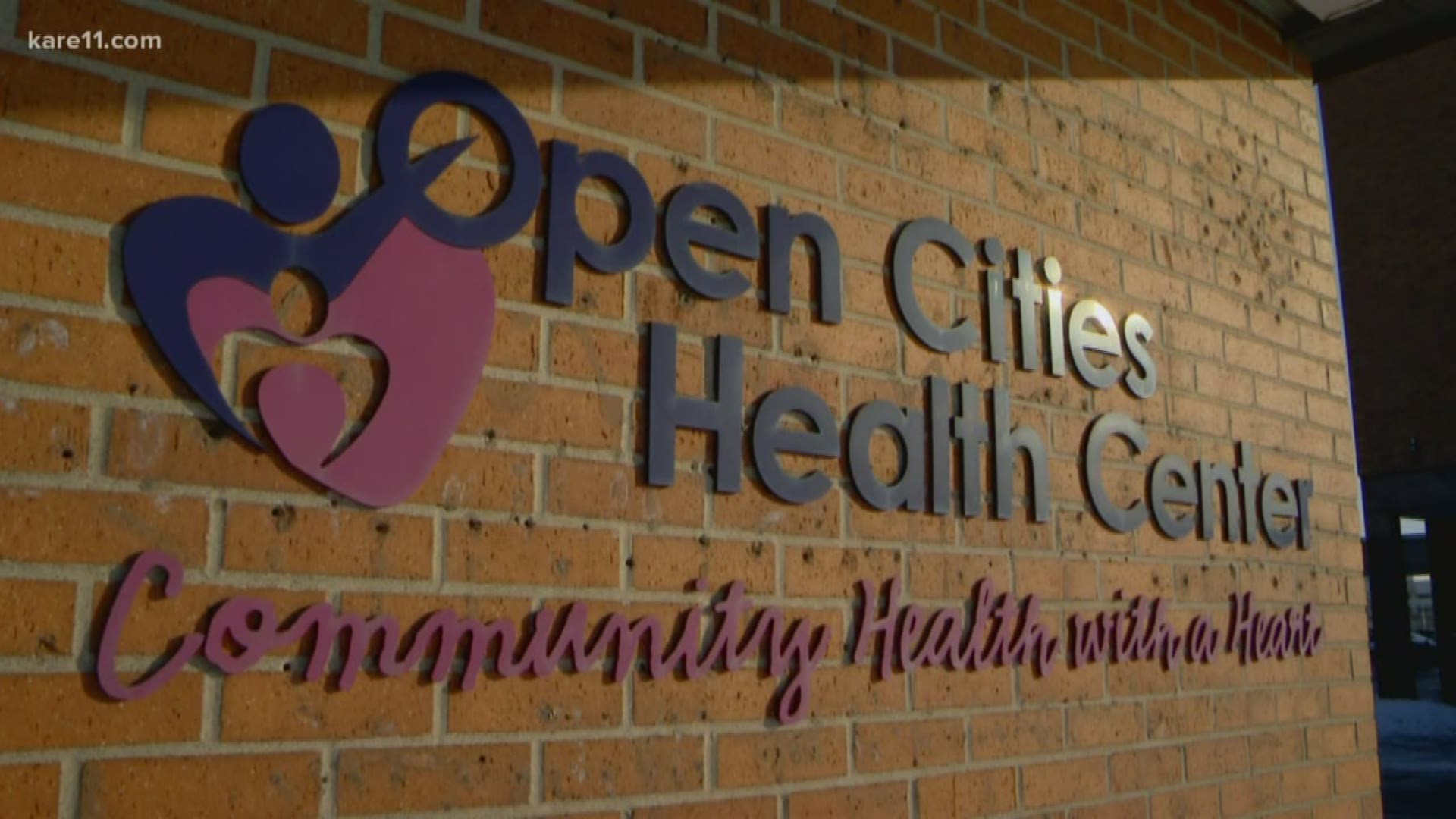ST PAUL, Minn. — For nearly two decades, the medical team at Open Cities Health Center has helped Veljean Harvey heal. She says a work-related accident left her with a brain injury and nerve damage, but now, the retired teacher is worried about the non-profit health center closing.
“If it goes away, I don't know where I am going to go. I am retired now,” Harvey said. “I come here for everything. The dentist is here. The doctor for my mammograms and everything.”
Open Cities Health Center is in trouble. The nonprofit health center serves 10,000 low-income, uninsured and under-insured patients.
In a letter, Open Cities CEO Ritesh Patel says by January 2020, the non-profit will have reached the end of its cash reserves and run out of money.
“If anyone comes in without insurance we won't turn (them) away. If you are below a certain number, all of your care is free. The less you make, the less you pay,” Patel said. “Big thing in media right now is about insulin. Someone could come here and get their care through my primary care provider and get their prescription from a Walgreens we partner with for three months for $13.60."
That's because Open Cities is part of a federal mandate to serve as a safety net, or a federally qualified health center. Patel said in exchange for operating under this mandate, the U.S. Department of Health and Human Services gives Open Cities a once-a-year grant of $2.7 million in April.
“Open Cities also relies on reimbursements from private insurance companies, Medicaid, Medicare, and payments made by those uninsured patients who pay out-of-pocket for their care,” Patel said in a letter to staff, patients and stakeholders. “Unfortunately, our current management team inherited an organization struggling under the weight of a long history of financial practices that had Open Cities borrowing against future federal grant money and borrowing against future 'receivables' (money we expect to get from patients and insurance providers).”
Patel says that isn't enough to cover all costs linked to providing care for 10,000 people. About 80% of patients are from St Paul.
“We have patients that come from all over the Twin Cities, Wisconsin, Iowa and the Dakotas and Nigeria. A few families save up for parents to come here and they get all of their health care needs met at Open Cities,” he said.
Part of the health center’s mission is to make sure its staff reflects the community it serves. Patel said without extra funding, patients might skip health care or pour into local emergency rooms, leaving hospitals to absorb the cost.
Harvey hopes the center she has come to love and depend on secures the funding it needs to stay open and run smoothly.
“We really need this place. Really need it,” she said. “if this closes it will hurt a lot of people.”

